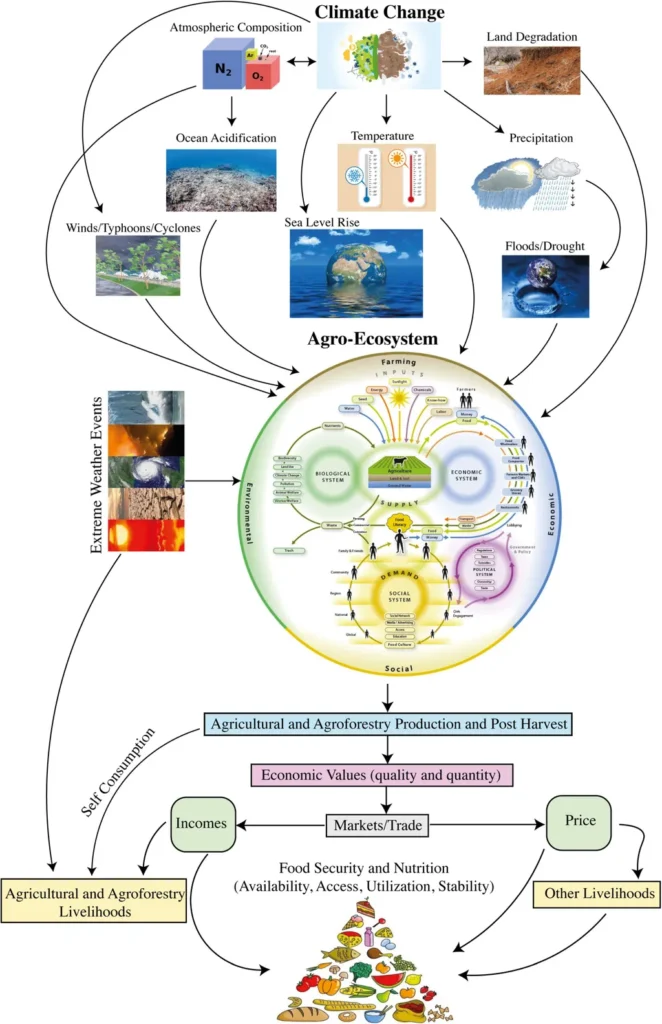In an increasingly interconnected world, the delicate balance between climate change and food security is becoming more precarious. A recent study published in *Food and Energy Security* sheds light on the intricate web of challenges and potential solutions that lie ahead. Led by Tanzeel Ur Rahman from the Department of Tourism and Hotel Management at the University of Swabi in Ambar Khyber-Pakhtunkhwa, Pakistan, the research delves into how climate change is reshaping food systems and what it means for global food security.
Climate change is not a distant threat; it is already altering rainfall patterns, causing droughts, and shifting growing seasons. These changes are not uniform, with different regions facing unique challenges. For instance, southern Africa is grappling with climate change as a primary driver of food insecurity, while the Indo-Gangetic Plain in India is dealing with labor shortages and water quality issues. “The effects of climate change on food security are complex and multifaceted,” Rahman explains. “They require tailored solutions that consider local socio-economic factors.”
The study highlights the critical role of food systems in determining the availability, affordability, and nutritional quality of food. However, these systems are under increasing stress from climate change, economic inequalities, and urbanization. Adapting food systems to meet these challenges is essential for building resilience. But it’s a complex task that requires a holistic approach.
One of the key findings of the study is the significant contribution of agriculture to greenhouse gas emissions. This underscores the need for policies that not only help food systems adapt to climate change but also mitigate its effects. “We need to develop strategies that promote sustainability and reduce the environmental impact of agriculture,” Rahman emphasizes. “This is crucial for building a safer and more sustainable food future for everyone.”
The commercial impacts of these challenges and solutions are profound. For the agriculture sector, adapting to climate change means investing in resilient crops, sustainable practices, and innovative technologies. It also means navigating the complexities of global food markets and supply chains. Companies that can successfully adapt to these changes will be well-positioned to thrive in the future.
The study also highlights the importance of international cooperation and knowledge sharing. As Rahman notes, “The challenges we face are global in nature and require global solutions. By working together, we can build a more resilient and sustainable food system.”
This research is a call to action for policymakers, businesses, and communities to come together and address the interconnected challenges of climate change and food security. It is a reminder that the future of our food systems is not just about feeding the world; it’s about feeding the world sustainably. As we move forward, the insights from this study will be invaluable in shaping policies and practices that promote a safer and more sustainable food future for all.

